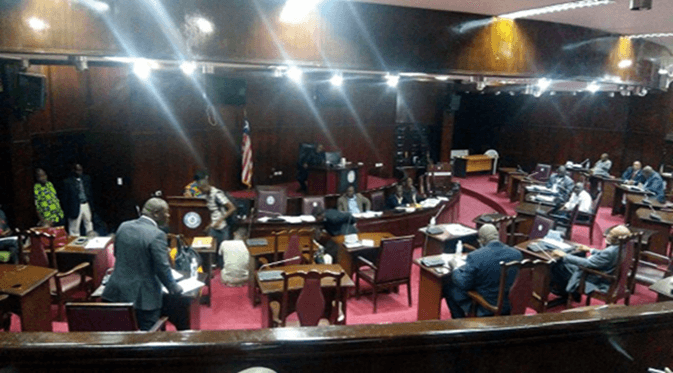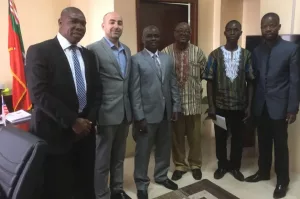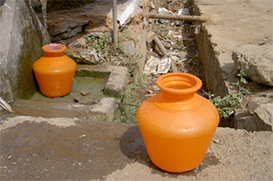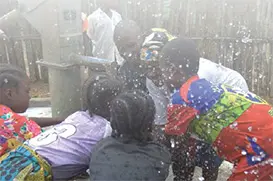heading
PROJECT: GOVERNANCE, ADVOCACY AND LEADERSHIP IN WATER, SANITATION AND HYGIENE (GOAL WASH)Liberia
The goal of this project was to support the establishment of a national Water Supply and Sanitation regulatory agency.
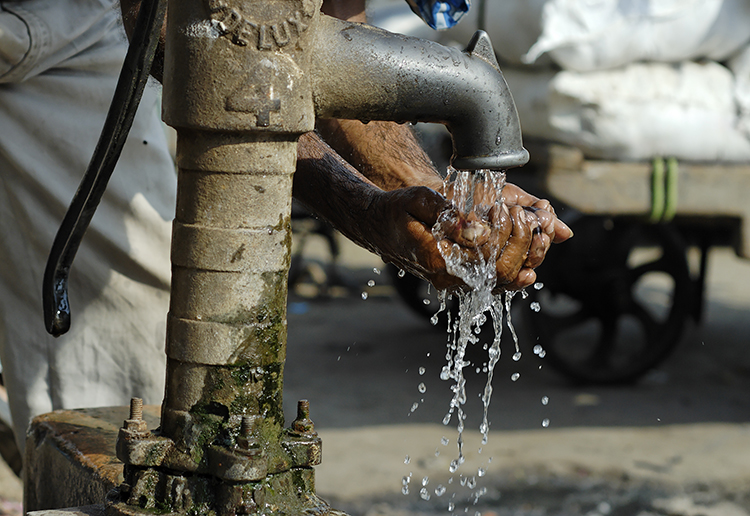
The WSSC is the regulatory agency that should be responsible for regulation of tariffs, licenses, Public Private Partnerships, service standards and water laws compliance, in order to ensure that water and sanitation services are provided in an efficient, fair and sustainable manner. The institution should act as an arbiter between various interests, namely those of customers, politicians and service providers.
Challenge
There are currently only limited standards for governing regulatory aspect of water and sanitation services in Liberia. There are no licences for water and sanitation supply and no coordinated service standards off which to monitor and regulate service delivery. This results in poor services and unpaid bills. Water laws need to be developed as there are competing users for water, this is especially important in a country that is evolving from conflict; water that used to be accessed by simply digging or drilling a well anywhere needs to be accounted for and equitably distributed in order to mitigate against conflict and to support development.
The absence of a functioning regulatory agency has led to continued fragmentation of roles and responsibilities within the sector, and has stifled the development of a vibrant private sector in water and sanitation services
Opportunity
In January 2012 the President of Liberia, Madam Ellen Johnson Sirleaf, signed the Liberia WASH Compact. The Liberia WASH Compact was developed as a result of the Joint Mission held in Monrovia in April 2011, supported by the Government of Liberia and the Sanitation and Water for All Partnership. Through the Compact the Government, with the support of development partners and civil society, outlined a series of commitments to ensure equitable and sustainable delivery of water and sanitation services for all Liberians. One of the commitments was to establish a regulatory agency for the sector, the Water Supply and Sanitation Commission (WSSC).
Strategy
The GoAL WaSH Programme started in 2011, with support from the Basque Water Agency (URA), and the immediate priority for the sector was getting the Liberia WASH Compact developed. Since then the Programme has focused on supporting sector coordination and the establishment of a national regulatory agency, the Water Supply and Sanitation Commission (WSSC). It is envisaged that the WSSC will regulate tariff setting and enforcement, issuance of licenses, establish Public Private Partnerships, set service standards and ensure Water Law compliance.
Achievements
The principal outcome, to establish a single water entity responsible for sector governance and regulation, was achieved. In 2017, a historic national decision was accomplished when the Government of Liberia passed an Act to establish the Liberia Water, Sanitation, and Hygiene Commission. In 2018, President George M. Weah constituted the Board of Commissioners and appointed the Chief Executive Officer and Executive Director. The President’s action catalysed progress towards sustainable WaSH governance, systems, and processes. In August 2018, the government appointed core officers for the Commission and made it operational. GoAL WaSH then responded to a request from the government for initial training for the National Water, Sanitation, and Hygiene Commission to train its regulatory staff using the WaSH Regulation Tool. This led to the development of the five-year strategic plan and roadmap for the Commission, including key activities recommended by national institutions undertaking responsibilities for WaSH.
The GoAL WaSH regulatory training was instrumental in developing this action plan for the Commission. While the Commission had initially proposed a condensed version of 16 prioritized activities over a five-year period, actual group work during the training encompassed over 40 different activities. Since health and environment regulations are the remit of the Ministry of Health and the Environmental Protection Agency, activities focused on identifying opportunities and actions in relation to the economic dimensions of water regulation, including tariff-setting, consumer protection, service quality, and competition.

